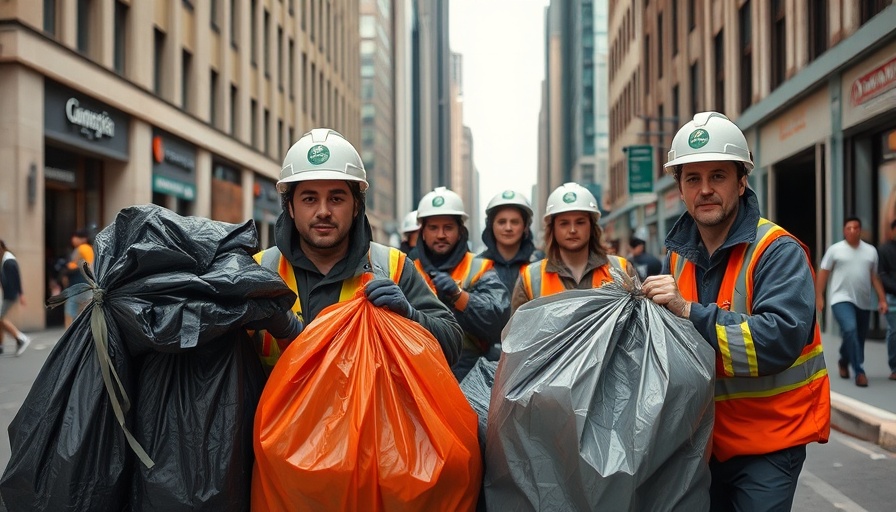
Understanding 'Dirty Work': A Shift in Perceptions
The notion of 'dirty work' encompasses occupations that are socially stigmatized because society views them as unpleasant or undesirable. This stigma doesn’t just affect individual morale; it can also lead to employee burnout and decreased job satisfaction. A recent study conducted by researchers at the University of Cincinnati highlights how perceptions of dirty work can be reframed, contributing to improved worker well-being. These findings are particularly relevant for business owners, property developers, and facility managers who oversee roles often underappreciated by society.
The Psychological Impact of Stigmatized Work
According to the University of Cincinnati study, which surveyed 250 workers in the U.S. and U.K. from sectors often considered dirty—such as sanitation, policing, and butchering—individuals who were less affected by societal opinions about their work reported lower levels of emotional exhaustion. Scott Dust, a co-author of the study, noted, “Those that don’t care what people say are much more resilient in maintaining job satisfaction.” This suggests that self-confidence and a supportive work environment can act as buffers against occupational stigma.
Strategies for Employers: Enhancing Worker Resilience
To combat the negative effects associated with dirty work, employers are encouraged to implement specific strategies that foster a sense of purpose and belonging among workers. These strategies include:
- Job Resources and Support: Providing adequate job resources and proper support systems can alleviate the emotional toll of these roles.
- Cultural Interventions: Initiatives that reassess and promote the critical value of dirty jobs can redefine how workers view their contributions. For instance, organizations might recognize the vital societal roles played by sanitation workers, thereby boosting their morale.
- Complex Identity Management: Helping employees develop a positive identity that resists stigma can be critical. By celebrating the essential functions of their work, employees can foster personal pride in their roles.
Lessons from Other Sectors: Parallel Approaches
This shift in perception isn't unique to dirty work fields; similar dynamics are observed in professions traditionally seen as low-status. For instance, during the COVID-19 pandemic, grocery store workers transitioned into 'hero' roles, which significantly boosted their perceived value in society. However, it's essential for stakeholders to ensure that this newfound appreciation translates into lasting improvements in recognition, worker welfare, and job conditions.
Future Implications and Opportunities
As society evolves, the narrative surrounding 'dirty work' must also change. It's vital for industry leaders and stakeholders to proactively advocate for policies that protect the rights and wellbeing of these essential workers. This could involve shifts in public perception, recognizing that everyone has a role to play in supporting those who perform dirty work. By fostering resilience and directly addressing the stigma associated with these roles, businesses can not only improve worker satisfaction but also enhance overall productivity.
As we continue to redefine our understanding of essential roles, reflecting on how society values different types of work can spark necessary conversations about respect, dignity, and the implications on mental health and employee engagement.
 Add Row
Add Row  Add
Add 




Write A Comment